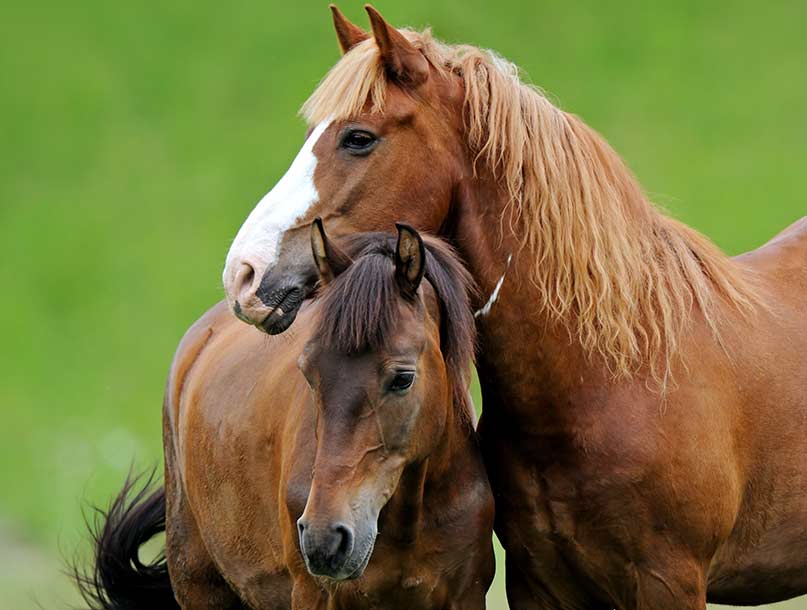
As with humans, when it comes to horses, maintaining a healthy weight is key to overall wellbeing. Being over or underweight can cause a whole range of problems from issues with your horse???s hooves to problems with their hearts, so it???s essential to keep an eye on your horse???s weight. Unfortunately though, measuring a horse???s weight isn???t quite as simple as hopping on the bathroom scale!
We???re all guilty of being a little lazy sometimes, and the same goes for our horses. But is it your horse???s weight that is making him lack that get-up-and-go attitude? Might he have a spring in his step if he lost a few pounds?
So if your horse is slow to move off the leg, it???s worth asking yourself if you???re feeding him correctly. It???s a bit of a vicious circle, as horses that are overweight will feel less inclined to move around, but still eat lots of food ??? horses are genetically programmed to eat and store energy. Here are some practical steps if your horse is on the podgy side:
- Calculate your horse???s weight and decide on a target. Your vet will be able to weigh him and advise on an ideal weight for his build and level of work.
- Reduce feed gradually. Take, for example, a pony weighing 440kg that has a target weight of 360kg. Rather than feed him for 360kg, which might irritate him and lead to behavioural issues, Gil suggests initially feeding for 400kg. A good rule is to feed 1.5% of a horse???s body weight in dry matter every 24 hours. So this pony would need 6kg of dry matter daily, split up as 1.5kg of hay and 1.5kg of chaff morning and night. It???s vital that you weigh food to ensure accuracy.
- Assess progress by trial and error. If your horse???s weight goes up or stays the same, you need to feed him less. Perhaps he needs less turnout, or to be muzzled. If his weight is dropping slowly but steadily week on week, your calculations are right. Remember, though, to keep an eye on the amount of feed after the goal weight has been reached, to ensure he doesn???t become thin.
If a lack of motivation seems to tip into listlessness or lethargy, there could be more serious medical issues at hand, such as anaemia, liver or lung problems, or (in older horses in particular) Cushing???s disease.
Making sure your horse is not over or underweight is important for his health and wellbeing. It may be that he is a little on the lazy side, so spicing up your ride??should inspire him to enjoy exercise more, and weight can be managed through controlled feeding. But if you notice listlessness and lethargy, it???s important to consult your vet.


